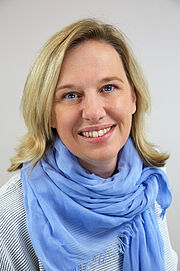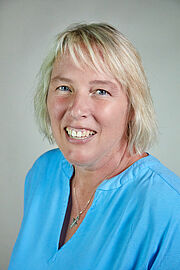Why learning foreign languages is more important than ever
As a student at Geisenheim University studying for a degree in Viticulture, International Wine Business, Horticulture, Food Safety and Logistics, Beverage Technology or Landscape Architecture, you might be wondering why learning a foreign language is relevant to you…
Well, learning a foreign language is relevant to everyone! It can open many new doors and lead to exciting opportunities in both your career and your personal life. Here are some of our top reasons for studying languages at HGU.
For many students at HGU, future career plans may involve working for the family business and catering mostly to the needs of German-speaking clients, but you never know what the future may hold! Markets can evolve quickly and companies need to be ready to adapt. Speaking foreign languages enables businesses to take different directions in the future, whether that means selling to customers from other countries, building partnerships with suppliers based abroad, or simply learning more about new developments from international experts.
If your future career plans involve working for any kind of company, large or small, domestic or international, a foreign language is always an asset. Employers are looking for graduates who can work effectively in multilingual teams. Being able to offer a foreign language shows that you are hardworking (nobody said learning languages was easy!), open-minded, and flexible. If you are hoping to work for one of the top international companies, you will be in competition with other graduates from around the world, many of whom will be able to offer more than one language. With foreign language skills and study abroad experiences on your resumé, employers will immediately see that you have the crucial international mindset they are looking for.
Speaking a foreign language isn’t just about what you can say. When you study a language and travel abroad, you will learn a lot about other elements of communication, for example, body language, diplomacy, and how to see problems from different perspectives. You will also develop your listening skills, memory, and creative thinking. Clearly, these skills are extremely relevant for teamwork, customer service, and innovating, and they will help you to become a more effective communicator and a better networker.
If you talk to people who have studied or worked abroad, they will often tell you that the relationships you build in a foreign language can be especially rewarding. Perhaps that’s because, when you don’t have the safety net of your own language and culture to fall back on, you have to work harder to connect with and learn about other people. Building relationships with people from different backgrounds to yours can sometimes be bewildering and frustrating, but you will learn a lot more about yourself and the world around you whilst making lifelong friendships.
Learning a language and studying or working abroad will lead to opportunities that you might never have had in your home country. You might have the chance to visit tropical botanical gardens, harvest grapes overlooking the ocean, or enjoy a typical meal in a family home. Those wonderful memories will stay with you for your whole life. You will find it challenging and perhaps sometimes feel homesick … but you will become a more experienced, interesting and empathetic person.
Language study focuses on developing four main skills: reading, writing, speaking, and listening.
Reading and listening are considered the more ‘passive’ skills - you are processing and trying to understand language - while speaking and writing are considered the more ‘active’ skills, whereby you actually have to produce language for yourself. Of course, in real-life communicative situations these skills overlap, which is where things get tricky!
Traditionally, language learning has mostly taken place in classrooms and this model of groups sitting together in a room with their teacher is obviously still useful for discussion activities. However, particularly when it comes to reading and writing, it can be very helpful to study on your own somewhere quiet at a time that suits you.
At the Language Center, we are working hard to develop a blended learning approach that makes the most of both digital learning solutions and classroom time. Some of your language content may be delivered in our online learning platform, Ilias, or via Stud.IP. For example, you might be asked to watch an online video, read an article, complete written comprehension questions, listen to an audio file and note down vocabulary, or complete a grammar worksheet. These are the types of activities that can be done in peace and quiet at a time that suits you. Then, when you come to class, the group can focus on speaking and feedback activities that work better in a face-to-face context. It is important to understand that these different types of activities and ways of working are interdependent – to improve in one, you need to work hard at the others too!
As a language student, try to be aware of your own preferences, strengths and weaknesses and understand that nobody can force you to learn a language. We are all individuals with different learning styles and we need to take responsibility for finding solutions that suit us - the more effort you put in, the more you will get out.
Tips for language learning
- Try to get as much exposure to your chosen language(s) as possible by listening to/reading/watching the news, TV series, films, podcasts, websites, blogs or whatever interests you.
- If you’re a beginner, try downloading free language-learning apps like Duolinguo to practise vocabulary.
- The HGU library can also offer you access to the Rosetta Stone online language learning programs in different languages. Visit the library homepages for more information.
- Make sure you have a free bilingual dictionary app installed on your phone (e.g., Linguee) and, ideally, a paper dictionary on your desk at home.
Don’t forget to meet other students who are native speakers of the language you are trying to learn! Our international students at HGU come from around the world and are keen to learn about German language and culture, so why not organise a weekly language exchange so that you can learn from each other?
Contact
For appointments and general information please contact: Sprachenzentrum(at)hs-gm.de
Office Hours
Tuesdays, 10a.m. - 3p.m., and by appointment.
The Language Center is in the Müller-Thurgau-Haus, rooms 01.02 and 02.02 (Coordination German courses).
Translation
The Language Center coordinates internal translation work for the university. For information please contact us: translation(at)hs-gm.de
Team






Teaching Staff








